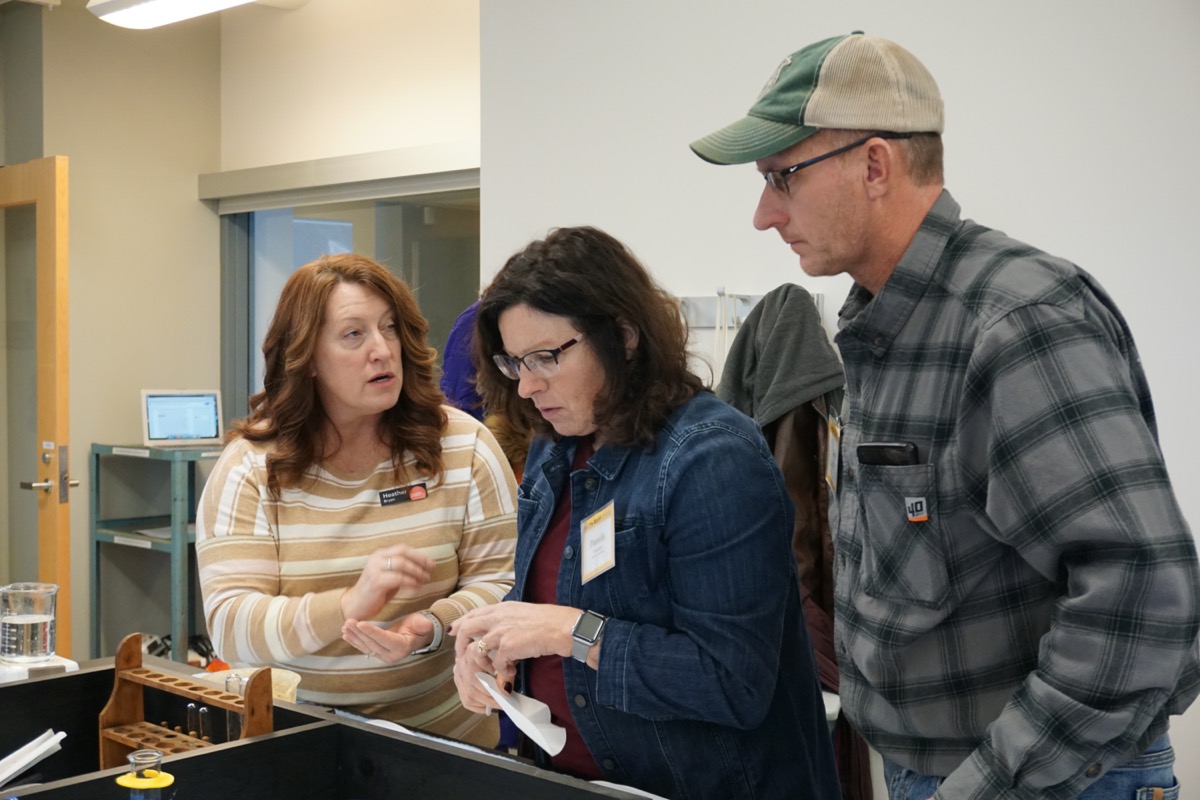
Twenty-two Ohio teachers gathered at Otterbein University recently for energy and ethanol lessons in a workshop sponsored by Ohio Corn & Wheat and Ohio’s corn farmers. This event gave them the opportunity to experience science lessons and receive supplies for their classrooms.
This workshop began with participants turning corn oil into renewable diesel through the process of transesterification. Corn oil molecules are transformed, using methanol and a catalyst, to produce renewable diesel, glycerin, soap, and other products. After washing the renewable diesel, it can be tested for density, cloud point, pH, and more.


Ethanol production begins with fermentation. An engineering design process activity challenged the teachers to choose feedstocks and enzymes and assess how much fermentation took place.
How do enzymes act on the starch? The Ticketase activity uses a string of paper tickets to model what is happening as the enzymes break down complex sugars.
Once that process has taken place, how have the corn flour’s nutrient values changed? Three tests were done to assess the change: Benedict’s test, a starch test, and a protein indicator. This helps demonstrate the difference after fermentation has taken place. Distillers dried grains, or DDGs, are a by-product of the ethanol production process and are used for animal feed.


This Fermentation factories video highlights one of the activities done at the workshop. It demonstrates the use of the engineering design process to learn what enzyme action can do and test to determine the role of each variable in the fermentation process.
Cherise Kent teaches Cleveland students on the topics of ecology, plant science, and environmental science through Holden Forest and Gardens. “I’ve enjoyed better understanding something I’m a consumer of—gas—and the benefits of ethanol. Students tend to think of seeking careers in familiar areas. Having access to this kind of information will help them understand about these types of jobs.”
Rebecca Baxter is a Champion High School physical science and STEM instructor. She found the activities valuable. “The ticketase activity is a great way to demonstrate to the students what is happening in that process,” Baxter said. “Kids love hands-on activities—these materials will help them understand the ethanol process and the jobs involved.”
Jason Wirth, a chemistry teacher at Marysville HS Early College, came with his colleague Jon Wing. “I plan to use these labs in my chemistry class,” Wirth said. “These lessons help students see a real-world application for what they are doing in class.”
Our Energy and ethanol unit includes these lessons to help your students learn about this valuable fuel source! And they’re FREE for you to use!